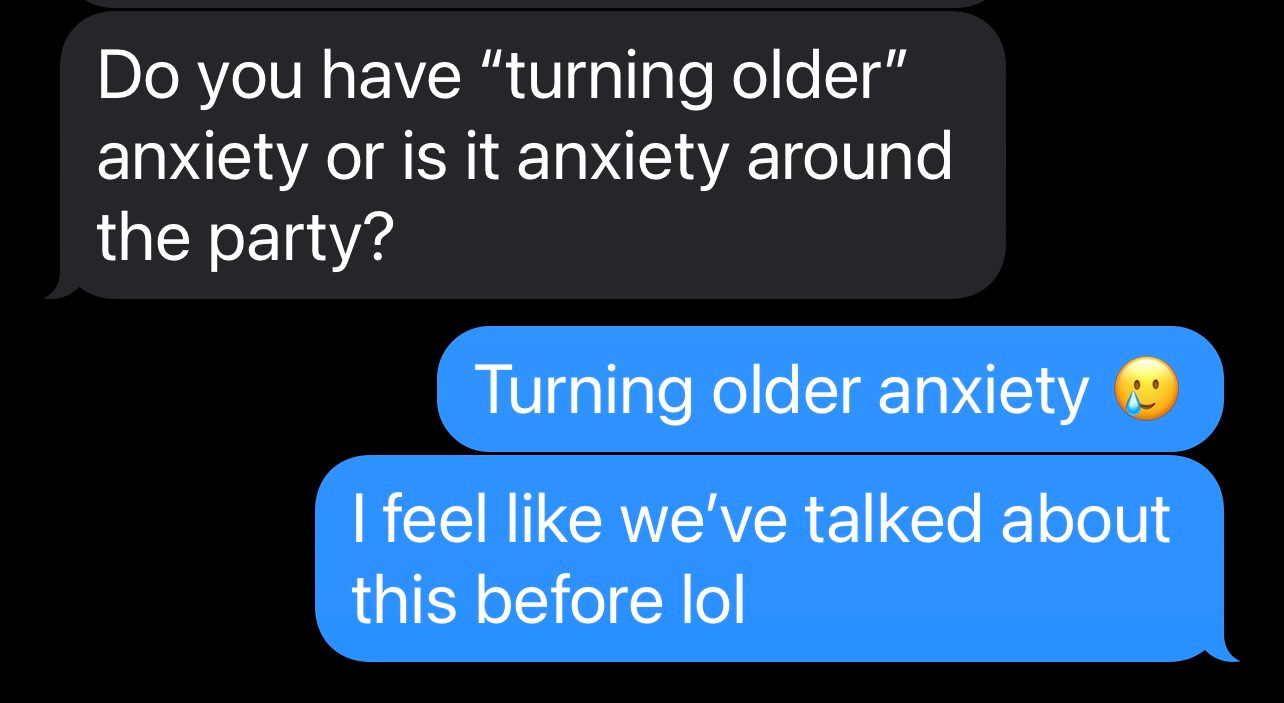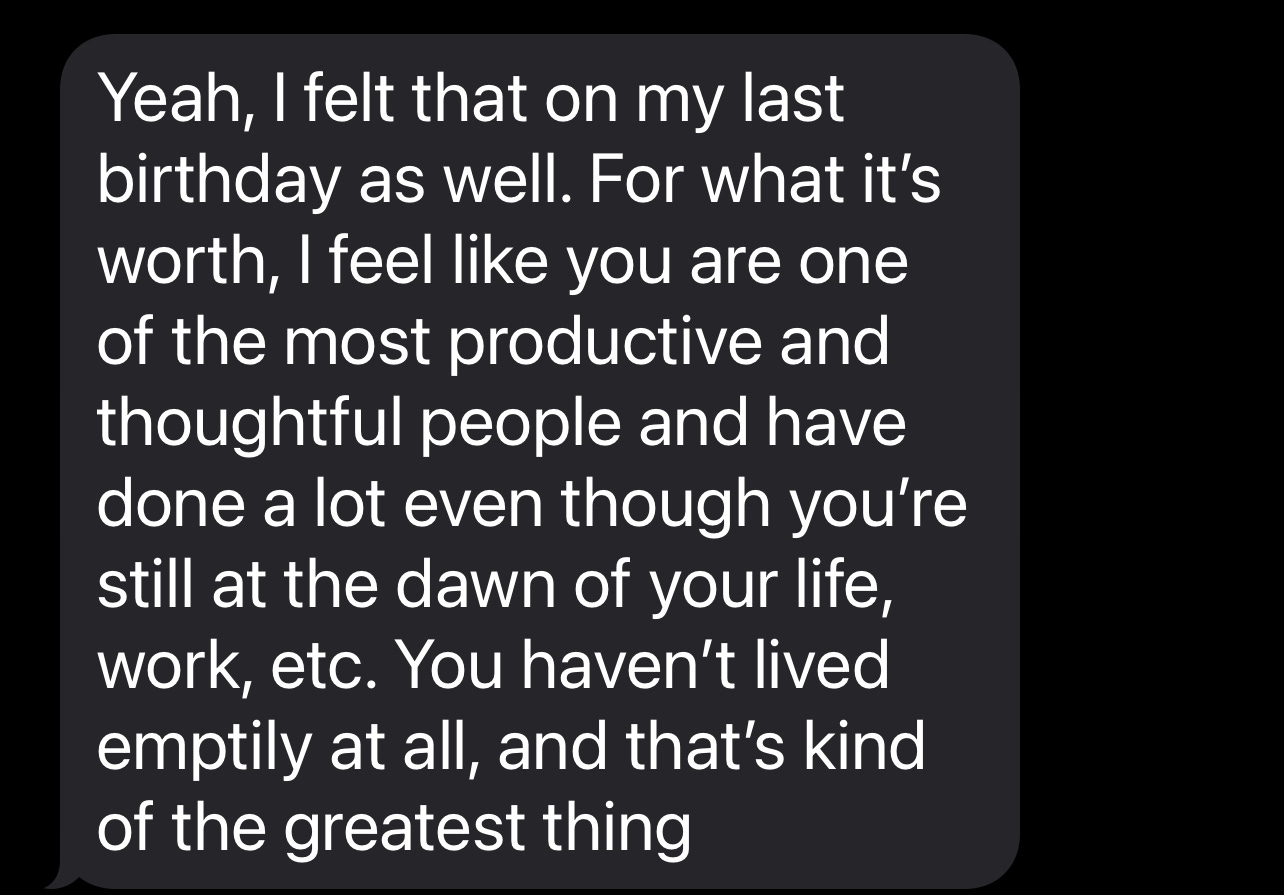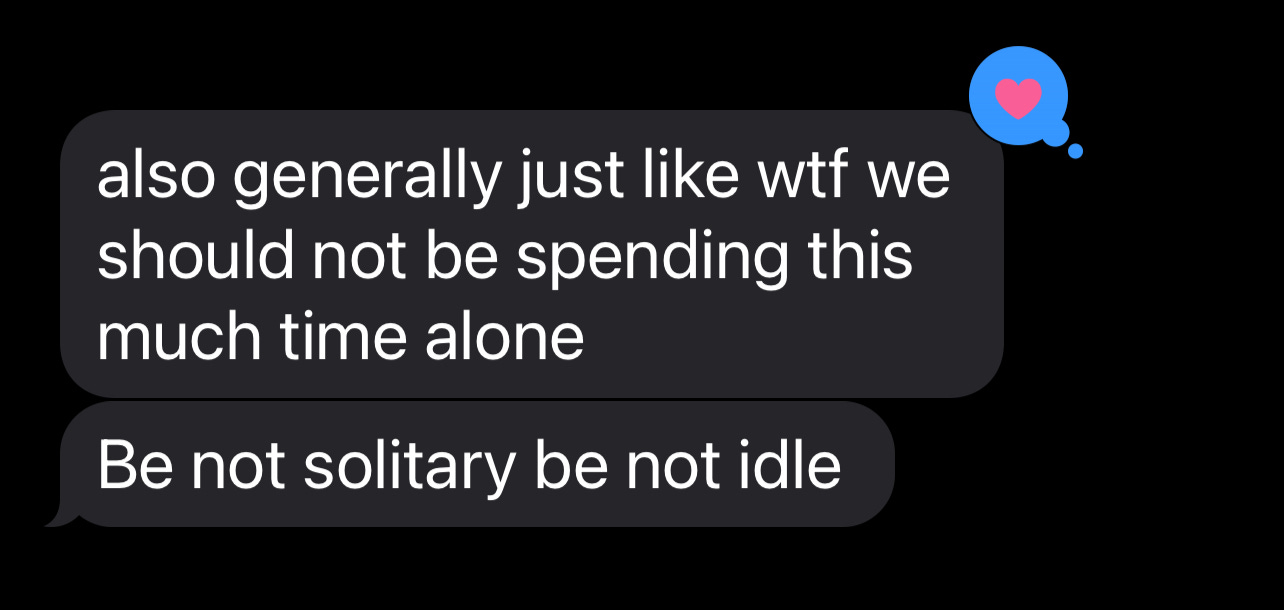I feel like 2025 is my last chance (at everything)
Final post of the year + writing prompts, book list, etc.
Paris, 1925
The Dingo throbbed with a pulse that came not from any one source but from the smorgasbord of it all—conversation, jazz, and the heat of bodies pressed too close together under a low-slung ceiling that seemed to bow inward from the gravity of so much life. Smoke surged, alive and serpentine, pouring from lips and nostrils, mingling with the perfume of spilt brandy, crushed citrus, and the sweet rot of too many cigarettes stubbed out in crystal ashtrays.
The Fitzgeralds, twice evicted from The Biltmore in New York City, were found at the bar tonight, the mister and missus entertaining separate groups of friends: Scott was introducing himself to Ernest Hemingway, pressing him for an address where he could mail a copy of his latest, The Great Gatsby, while Zelda, in her usual state of blurriness, bragged half-true stories through dark red lips about this Italian soldier whom she had an affair with and how he had tried to kill himself when she refused to run away with him.
Hadley, a pianist from Chicago before becoming Mrs. Hemingway, watched a moustached waiter pour water over a sugar cube held by a perforated spoon as sweet droplets rained into a glass of absinthe. In Paris, absinthe was illegal, and so were cocaine and opium, but you could easily find all three if you knew where to look. Beside her sat Ezra Pound and Dorothy Shakespear, a proudly childless couple who talked in circles about avoiding the Midwest if they ever moved back to the States.
At another table, a bare-shouldered Vogue journalist with short black hair rambled on about how Chanel invented sunbathing and her friends nodded like it was gospel. These women were modern, professionally pretty, and a few of them dated each other.
On the dance floor were dresses that swished and swayed and bubbled to reveal flashes of thighs and garters. Men and women bounced wildly to the Charleston while others reignited old fights about mistresses made of silver.
Overheard from a French garage owner finger-wagging at the young workers, calling them “génération perdue” (lost generation) because they lacked discipline and direction, Gertrude Stein adopted this phrase to describe the broader mood of young people coming of age after WW1. With Hemingway’s popularization of the term in The Sun Also Rises, the Lost Generation became the official synonym for the expatriates who grappled with a sense of purposelessness in the hard-drinking, fast-living, and free-loving jazz age of Paris.
Our friends at the Dingo, too, struggled to see where they fit in, explored their own alienation, and aimed for a certain bleeding-heart authenticity in their work. Yet, we kind of view them frozen in time, as if they were perfectly ‘made’ while they were alive, Wikipedia pages already written in invisible ink just waiting for them to live out some predestined legacy.
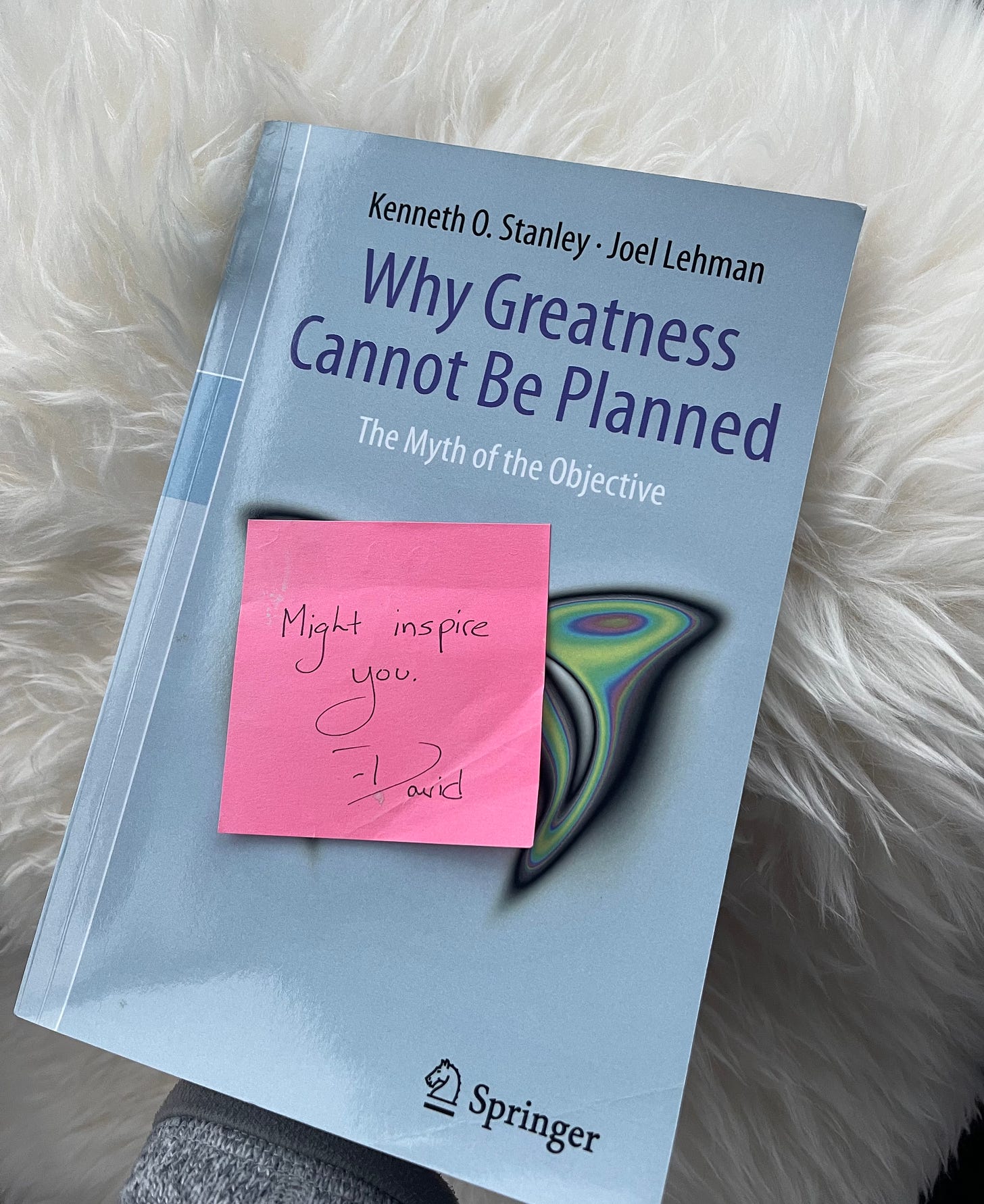
Exactly one century later, here we are, lost, again.
I’m at the age where many of those Greats produced their best. And it makes me panic thinking that I don’t have a novel of that literary success out yet. Not even a manuscript. (in a lower whisper) I don’t even have a synopsis.
People tell me I’m young but I’m tired already. More tired than I feel like I should be. I don’t want a break because I feel like I don’t deserve it—I’ve done nothing with my life yet. Burnout is a badge I stole.
A part of me feels like I haven’t partied enough, another part blames that on the pandemic. I enjoy the conveniences of modern technology yet I’m too passionate to let go of all organic struggles and surrender to the machine. I want to be new-age but I’m in love with the beauty of the old world—I don’t want to be forgotten by progress yet I want to stay in candlelit 1800s Vienna, spiritually, forever. I’m trying very, very hard to become who I am.
For now, I feel like the Lost Generation 2.0. I’m a shadow of the Fitzgeralds and Hemingways—a lazier, sleepier version. K.M. said that while Rococo had its winding elegance and Renaissance had its signature naturalism, there’s nothing distinctive about our era, except anxiety.
I read on Twitter that the Greek word often translated as “anxiety” in Scripture is μεριμνάω (merimnao), which comes from μέρος (meros), meaning “part” or “portion.” Anxiety isn’t about being worried or scared, but divided and fragmented.
Anxiety is a lot like fog: it makes you blind about what’s ahead. When you’re anxious, you’re only able to see the next few weeks of your life (and if you’re really broken in spirit, the next few days or hours). Being distracted—torn apart and disconnected from your heart—is paralyzing. I used to be one of those people that, if I had something important at 3PM, I wouldn’t be able to do anything in the hours leading up to it. Feeling split by a million different possibilities is an amazing waste of time.
Toronto, 2024
The December air is harassingly cold, not just with frost, but with the palpable presence of the days left of what will soon be yesteryear, like the slow heartbeat of a hibernating beast, belly dull from a long fast and eager for its next exit from the cave.
I used to think that this whole achievement thing was about claiming the throne, but now I think it’s more like clearing away the cobwebs and settling down into the well-worn armchair of your own strangeness. In Valerie’s delicate compilation of quotable lessons, I wrote, “You’re not a Scorpio or a girlboss or a trad cath. Stop it with the slogans. You’re a wonderfully unique person and you’re called to live, not perform.”
The word I’m looking for is “unity”:
It’s that popular quote from Dostoevsky, Your worst sin is that you’ve destroyed and betrayed yourself for nothing, which means you’re a lot happier when you don’t go against your own conscience. It’s Jordan Peterson’s 8th rule, Tell the truth—or at least don’t lie: lying does to your sense of reality what alcohol does to your sense of balance.
The opposite of anxiety isn’t calmness; it’s unity, and unity is the homecoming of the prodigal who finds that the reward of being honest with one’s own heart isn’t found in the shining jubilation of feeling proud or righteous or whatever but in the joyful exhaustion of going to bed every night knowing that you tamed the creatures of the id and tried your best at doing what you love.
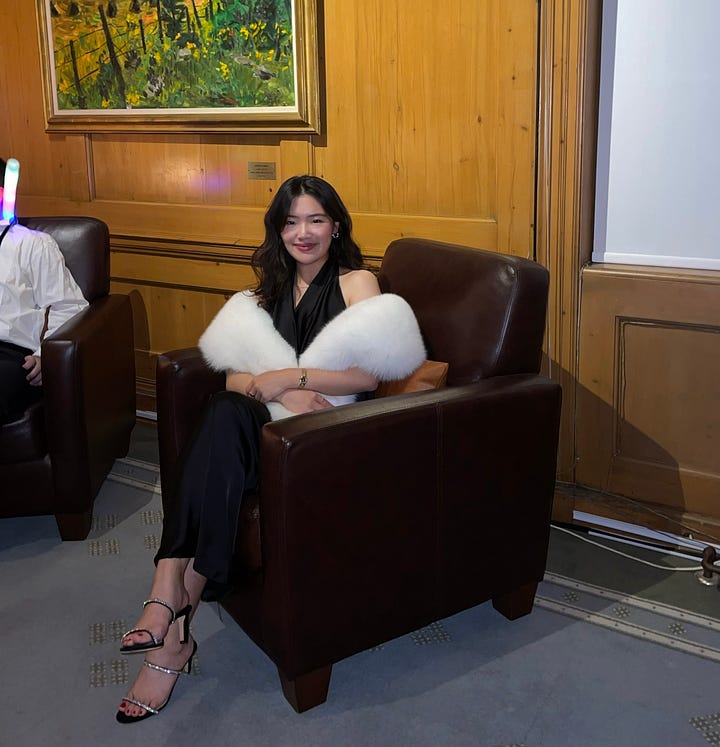
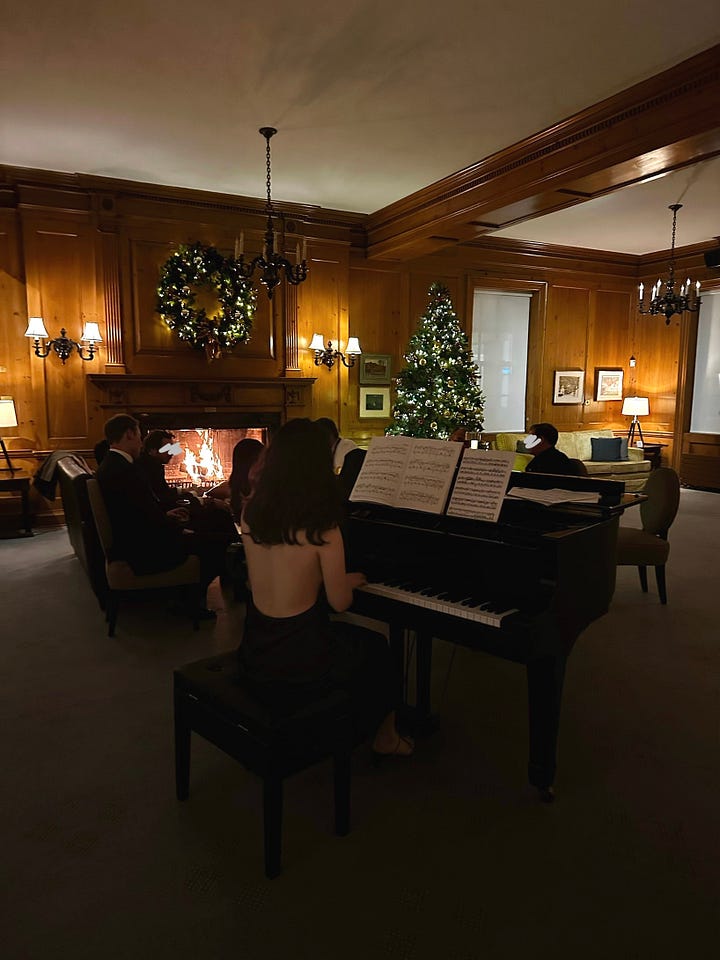
For now, Merry Christmas. Stay warm. Be holly and jolly. Hug your family. Text old friends. Delete unused apps. Open your heart and let that joy in. I’ll see you next year!!!
~
Thanks for following along,



